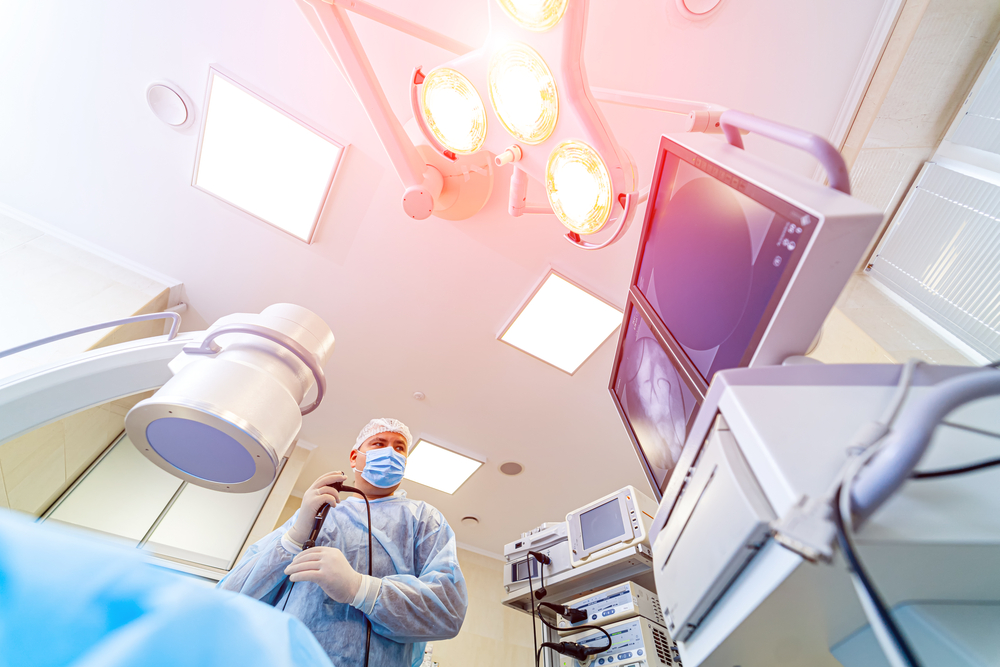Advantages of Weight Loss Surgery Near Me, El Paso

You’re only considered a good weight loss surgery candidate if your chances of positive results are realistic. Also, the surgery should not pose a significant threat to your health. It should, instead, improve your appearance and health, and change your quality of life in the long run.
Of course, the surgery may not solely guarantee to turn your life around. The surgeon may require that you make certain behavior and lifestyle modifications to complement the results and ensure they last. You may even be recommended to consider additional clinical procedures and medications.
Common complementary procedures include breast lift, breast augmentation, liposuction, and abdominoplasty, all of which are dedicated to treating fat, improve loose muscles, lift sagging areas and remove excess skin.
Why Choose a Weightloss Surgeon?
Bariatric surgery is a fast, safe, and effective way to reduce your weight while warding off the dangers of obesity, such as heart disease, diabetes, and cancer, among others.
If you think weight loss surgery may be right for you, please contact your bariatric specialist in El Paso today.
Bariatric Surgery for Your Reflux in El Paso

At El Paso Bariatric Surgery, we provide performing different reflux surgeries, including hernia Repairs, Nissen Fundoplication, and Fundoplication. Our reflux surgery procedures are highly effective and will help enhance your lifestyle.
What’s more, our experienced team will discuss your reflux surgery requirements to determine the GERD surgery that is appropriate for you. Our specialists will understand your need and provide personalized care for you. When you visit our practice located in El Paso, TX, you can expect the following for your reflux Surgery:
- We treat our patients with respect and care
- We will attend to you at your scheduled time without waiting in the queue
- Our professional team will discuss everything about the treatment
- We will provide comfort throughout your treatment and appointment
Our Reviews
Over the years, we have had fantastic reviews from different people due to our quality service delivery and professional conduct. One of them, Kimberly Gonzalez, based in Fort Hancock, TX, stated that he would recommend our practice because of his remarkable experience with Dr. Clapp and our experienced staff members.
Book an Appointment!
Please schedule an appointment with us at El Paso Bariatric Surgery today for your Reflux Surgery. Our team can help provide a long-term solution to your GERD symptoms.
Weight Loss Surgery in El Paso

You’re only considered a good weight loss surgery candidate if your chances of positive results are realistic. Also, the surgery should not pose a significant threat to your health. It should, instead, improve your appearance and health, and change your quality of life in the long run.
Of course, the surgery may not solely guarantee to turn your life around. The surgeon may require that you make certain behavior and lifestyle modifications to complement the results and ensure they last. You may even be recommended to consider additional clinical procedures and medications.
Common complementary procedures include breast lift, breast augmentation, liposuction, and abdominoplasty, all of which are dedicated to treating fat, improve loose muscles, lift sagging areas and remove excess skin.
Why Choose a Weightloss Surgeon?
Bariatric surgery is a fast, safe, and effective way to reduce your weight while warding off the dangers of obesity, such as heart disease, diabetes, and cancer, among others.
If you think weight loss surgery may be right for you, please contact your bariatric specialist in El Paso today.
Best Reflux Surgeon in El Paso

As part of our commitment to ensuring our patients are informed about our El Paso reflux surgery practice, we’ve included an extensive section on this website covering a whole range of topics related to GERD treatments and reflux surgery.
We encourage you to look through this site whenever you have concerns about GERD symptoms or want to learn more about our practice.
Our Surgeon, Dr. Benjamin Clapp, MD FACS FASMBS, is a top-rated El Paso reflux surgeon doctor who is committed to providing comprehensive reflux surgery for you and your family.
What is reflux surgery?
Acid reflux occurs when the stomach acid flows backward in the esophagus causing heartburn and other symptoms. Mild reflux symptoms can be relieved by prescriptions drugs, diet, and healthy life changes. If acid reflux (GERD) symptoms are severe and cannot be relieved by medications and life changes, your doctor may recommend reflux surgery.
Reflux surgery focuses on repairing or replacing lower esophageal sphincter (LES). It is this valve that normally keeps acid from flowing back from the stomach. If this valve is weakened or damaged, GERD occurs.
Request an Appointment
Schedule an appointment with the best reflux surgeon doctor in El Paso for all your weight loss needs.
Questions to Ask Your Weight Loss Surgeon | El Paso
Once you and your weight loss specialist have determined surgery is your best option to achieve a healthier lifestyle, you may have a few questions about your procedure. Fortunately, before your procedure, you will have the opportunity to consult with your weight loss surgeon about your questions and concerns.
Consulting with Your Weight Loss Surgeon
It is common to have questions about any procedure that will require surgery. Though weight loss surgery is a common procedure there are still risks during surgery and challenges you may face in the time after. To help better understand your procedure, here are a few common questions patients ask their weight loss surgeon:
- Do the benefits of weight loss surgery last? A new study has just emerged revealing that weight loss surgery not only helps people lose a significant amount of weight but that the weight “appears to stay off for at least 10 years”.
- Can I return home the day after surgery? Patients typically must stay in the hospital for one to two days following surgery. And return home with a list of post-operation directions that must be followed for a speedy recovery process and for the best results.
- How soon may I eat food? Expect to be on a liquid diet (including protein shakes) for the first two weeks following your surgery as your body heals. During week 3, you may shift to soft foods such as meatloaf, fish, eggs, etc. By week 4 you should be able to resume back to normal.
Schedule Your Appointment
To learn more about what to expect with weight loss surgery, contact your bariatric specialist in El Paso to schedule your appointment today.
Visiting a Bariatric Surgeon Near Me, El Paso
Deciding to undergo surgery in order to achieve your weight loss and health goals is a critical decision. By visiting a bariatric surgeon near you, you can best understand the risks, benefits, and the procedure to determine if bariatric surgery is right for you.
During a consultation, factors in determining if a patient is a candidate for bariatric surgery may include:
Diet and Exercise
Many find it easy to lose weight with a change in diet and exercise in El Paso. For many who are obese, this is not always the case. Patients unable to lose weight with a healthy diet and regular exercise may be candidates for bariatric surgery.
Body Mass Index
Body mass index is an excellent way for doctors to determine if a patient’s weight is cause for concern. For patients who have a body mass index greater than 40, health concerns can arise quickly. Bariatric surgery can help patients with a high body mass index to reduce their weight and possible health concerns.
Health Concerns
Patients who are obese have other health conditions such as type 2 diabetes or sleep apnea that are cause for concern. These conditions plus a body mass index above 35 could mean the patient is a candidate for bariatric surgery.
To best determine if bariatric surgery is best for you, schedule your consultation with an El Paso bariatric surgeon near you.
Hernia Repair Surgery in El Paso TX
Recovery from hernia repair surgery varies with every patient. Your top-rated bariatric surgery specialist in El Paso will discuss with you what to expect during the recovery period after hernia surgery.
Each year, hundreds of thousands of hernia surgeries are performed in the U.S. While all surgical procedures come with some risks, the majority of patients who have had hernia surgery recover quickly and do well after the operation. Some patients may develop moderate to severe pain after laparoscopic surgery but many can expect to go home on the day of, or the day after your operation. You will feel sore and some discomfort in your groin after your hernia repair surgery and painkillers can help relieve the pain.
Your recovery period after hernia repair surgery should be as follows:
Days 1-4
During this time, you should only do basic daily functions such as eating at home or walking around the house. Do not go to work or school or perform work-related activities.
Days 4-7
Four days after hernia surgery, a majority of patients should be able to return to work. However, you should avoid lifting heavy loads. During this time you’ll be experiencing mild pain hence the need for occasional painkillers. You can also do light exercises like light stretching or walking.
Week 2
At week 2, all patients should be able to resume work or school. But you should still limit the amount of weight you carry to less than 20 pounds. Exercises recommended at this stage are jogging, yoga, biking, and light weight lifting. You’re likely to experience stiffness and occasional discomfort at this stage.
Week 3
At week 3, expect to resume about 85% of your normal daily activities. The types of exercises you can do at this stage include running, cycling, swimming, yoga, golf, and light weights at the gym.
Week 4
By week 4 you should resume work or school activities fully. You can also return to heavy or more demanding tasks without feeling any problems. An exercise you can do during this period includes heavy lifting, contact sport, competitions, and other regular training exercises. While you may still experience tugging, pulling, aches, heaviness, burning, swelling or occasional discomfort, it is completely normal.
You may also experience constipation during the recovery period due to oral pain medicines. The risks of constipation can be reduced by drinking lots of drinks and consuming plenty of vegetables, fruits, and high-fiber foods.
Caring for Yourself
It is normal to feel postoperative pain around the wound after your hernia operation. Most patients will experience some level of bruising and swelling in the area of a hernia operation.
Look after yourself by ensuring you follow instructions about your hygiene and caring for the wound.
Schedule an appointment with the best hernia surgeon in El Paso TX by contacting our office today.
GERD Surgery Treatment in El Paso TX

Do you have concerns about gastroesophageal reflux disease (GERD)? Then you can benefit from reflux surgery. People live with acid reflux and associated issues for years. You should not do that. Reflux surgery is an effective treatment for GERD and can certainly help you live a healthier and more enjoyable life.
What is Reflux Surgery?
Reflux surgery is a procedure that repairs or replaces the lower esophageal sphincter (LES), which is the valve that normally keeps the acidic content of the stomach from flowing back into the esophagus. It is an effective treatment that improves the symptoms of GERD and helps patients enjoy a better life.
Who Needs Reflux Surgery?
Acid reflux is an important surgery for those who suffer acid reflux. GERD patients experienced heartburn and other symptoms of acid reflux because their lower esophageal sphincters are damaged or weakened. Reflux surgery fixes this important valve and improves the quality of life for the patient.
What are the Benefits of Reflux Surgery?
The major benefits of reflux surgery include:
- It is an effective treatment that can put a stop to acid reflux and its accompanying troubles
- Surgery is the quickest way to treat acid reflux and prevent future problems associated with the condition.
- It will help patients to avoid taking long-term medications for GERD.
Where to Get Reflux Surgery
Have you been diagnosed with GERD? Do you think you are a good candidate for reflux surgery? El Paso Bariatric surgery may be the right place for you. Dr. Benjamin Clapp is an experienced surgeon who has performed several types of reflux surgeries. He is adept in fundoplication, Nissen fundoplication, hernia repairs, including Hiatal hernias and paraesophageal hernias, among many others.
Dr. Clapp is also surrounded by an excellent team of professionals who will make your experience exceptional . The Dr. will discuss your specific condition and will work with a plan for reflux surgery that is best suited for you. Book an appointment to get started.
Is Weight Loss Surgery Right for Me? El Paso

Weight loss struggles are common throughout our culture. Fortunately, there are solutions to help you begin a healthier lifestyle. If you are finding losing weight to be difficult, weight loss surgery may be right for you.
Patients with a body mass index of over 35 are considered eligible for weight loss surgery. You must also have tried traditional weight loss methods before settling for bariatric surgery. If you have a high risk for an obesity-induced disease or have a life-threatening disease, you may be considered a good candidate.
Other guidelines may include obesity that has not receded for more than five years with the patient having no history of drug or alcohol abuse or an untreated psychiatric disorder. As regards age, everyone is eligible, though common candidates are between the ages of 18 and 65 years old.
What Happens If Weight Loss Surgery is Right for Me?
You’re only considered a good weight loss surgery candidate if your chances of positive results are realistic. Also, the surgery should not pose a significant threat to your health. It should, instead, improve your appearance and health, and change your quality of life in the long run.
Of course, the surgery may not solely guarantee to turn your life around. The surgeon may require that you make certain behavior and lifestyle modifications to complement the results and ensure they last. You may even be recommended to consider additional clinical procedures and medications.
Common complementary procedures include breast lift, breast augmentation, liposuction, and abdominoplasty, all of which are dedicated to treating fat, improve loose muscles, lift sagging areas and remove excess skin.
Are There Other Weight Loss Solutions?
Since surgeons won’t consider bariatric surgery unless other treatments have failed, it is important to know all your other alternatives. The most common weight loss techniques are exercise and diet modification. These should be considered with the guidance of a weight loss doctor before resorting to surgery. Other procedures include liposuction and a tummy tuck.
Call your weight loss specialist in El Paso today to schedule an appointment with our weight loss surgeon, who will help assess your candidature for weight loss surgery.
Best Weight Loss Treatments Near Me, El Paso

When weight loss treatments were introduced a few decades ago, its sole purpose was to help people lose weight. Today, it does a lot more than just that. Weight loss procedures have been shown to improve symptoms of weight-related conditions such as type 2 diabetes, high blood pressure, acid reflux, sleep apnea, and heart disease. What’s more, doctors can now tackle weight from multiple angles, making almost any case of overweight or obesity remediable by surgery.
By consulting with your bariatric specialist, you can discover which treatment is best for you. Most specialists recommend weight loss treatments after other interventions have not helped to improve your health. Common procedures include:
Gastric Bypass
Gastric bypass is performed to limit the amount of food your stomach can hold. The surgeon creates a pouch at the top end of your stomach, to which the small intestine is cut and connected. Food thus flows into the intestines without getting into the main part of the stomach, effectively reducing the amount of food you can take per sitting and, consequently, the number of calories your body absorbs.
This may be the best type of surgery if you have acid reflux as it reduces the upward pressure that pushes up stomach content into the esophagus.
Sleeve Gastrectomy
This procedure is pretty similar to gastric bypass, except for the fact that the cut portion of the stomach is removed entirely from the body. The objective is straightforward – to physically reduce the size of the stomach, so you get full without eating much. The surgery also reduces one’s urge to eat as the hormone that alerts the brain when one gets hungry is located in the section of the stomach that is cut off.
Sleeve gastrectomy heals more quickly than gastric bypass and is suitable for people who have had multiple other surgeries in the abdominal area.
Adjustable Gastric Band
In this, an inflatable balloon is placed inside a silicone ring, which is attached to the upper part of the stomach. A small tubing is attached to the balloon with one of its endings connected to a port placed under the skin in the abdomen.
Using the port, the surgeon can modulate the diameter of the opening at the top of the stomach and create a pouch where food sits for a while after a meal so the individual feels full faster.
Biliopancreactic Diversion with Duodenal Switch (BPD/DS)
The BPD/DS involves two procedures: a sleeve gastrectomy – where part of the stomach is tied into a banana-shaped pouch – followed by the surgical attachment of the small intestine to the pouch. It is known as a malabsorptive surgery as it is designed to regulate the number of calories absorbed along the gut. It makes the food storage part of the stomach much smaller and makes the food reach the small intestine faster.
Schedule Your Consultation
Weight loss surgery is the way to go if you’re looking for a quick and effective way of shed the few extra pounds. To find out if surgery is right for you, contact your weight loss specialist in El Paso TX to schedule your consultation.
